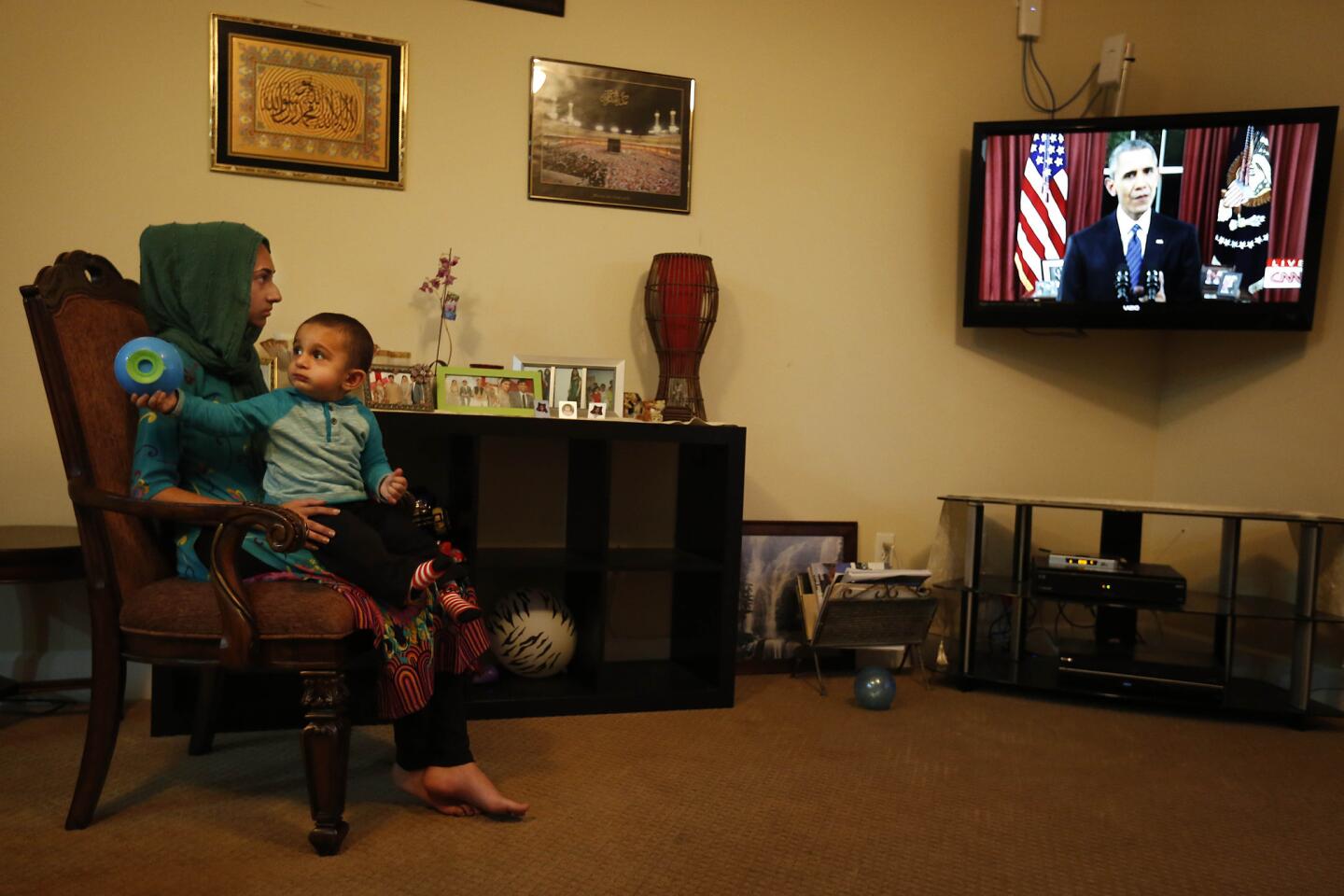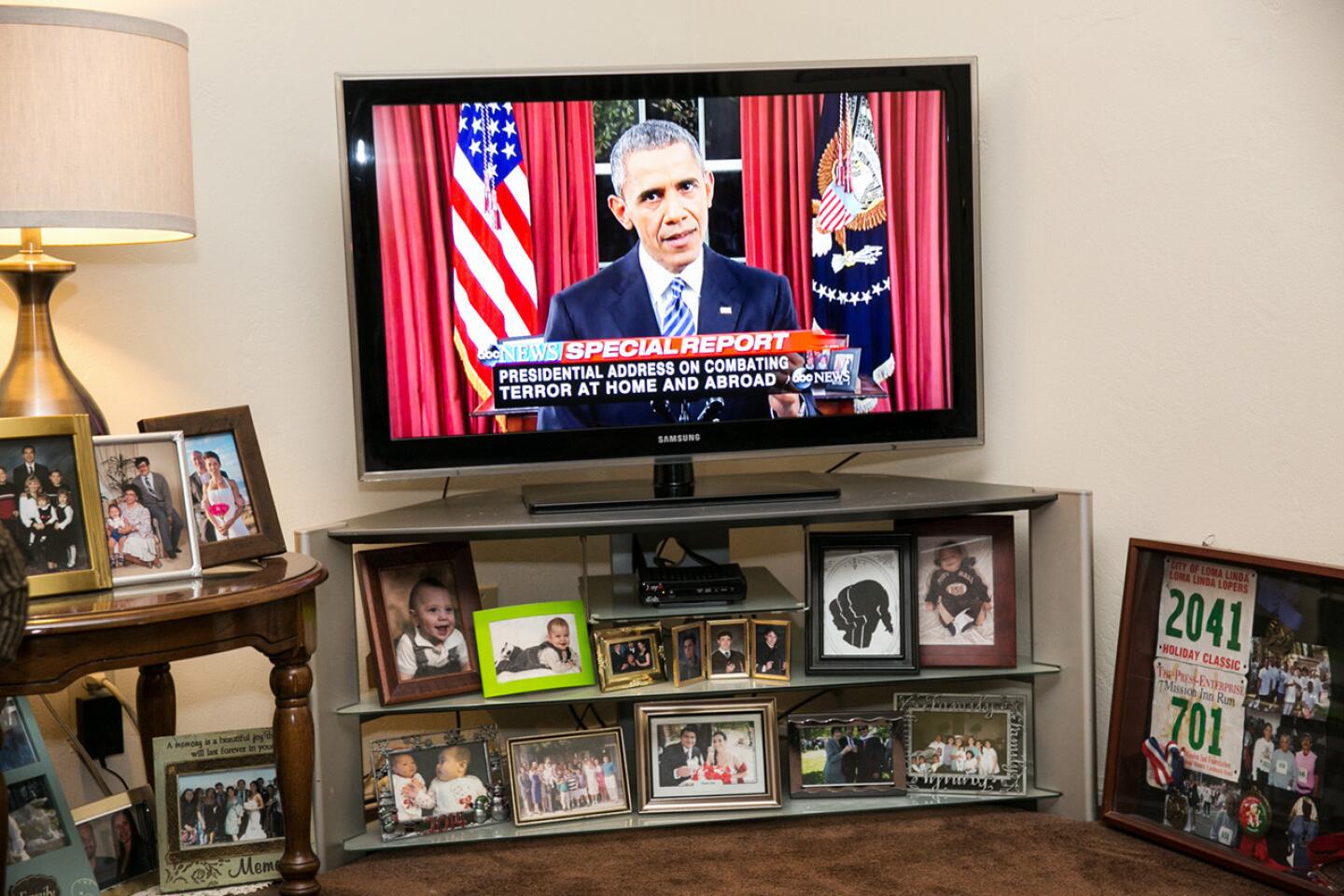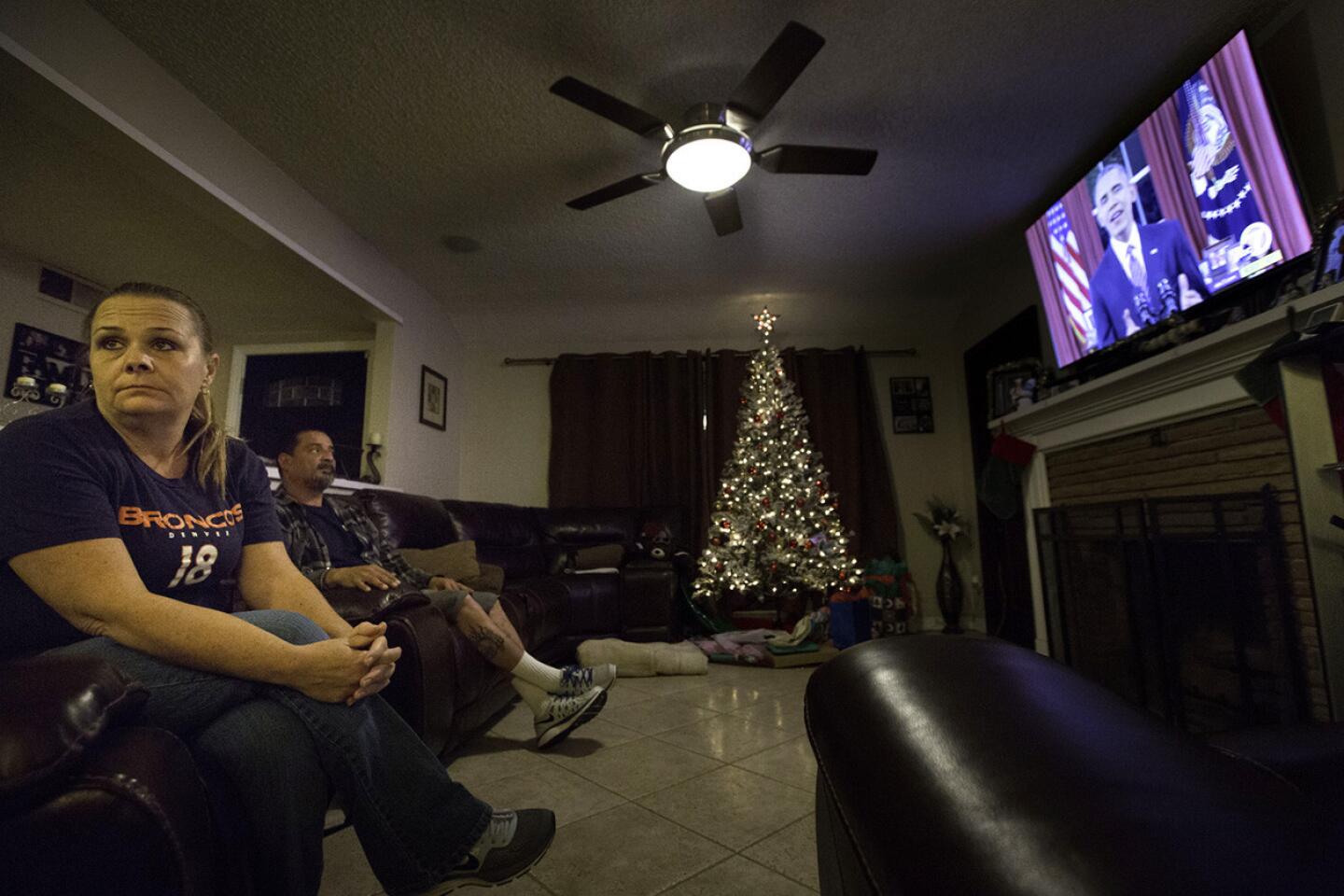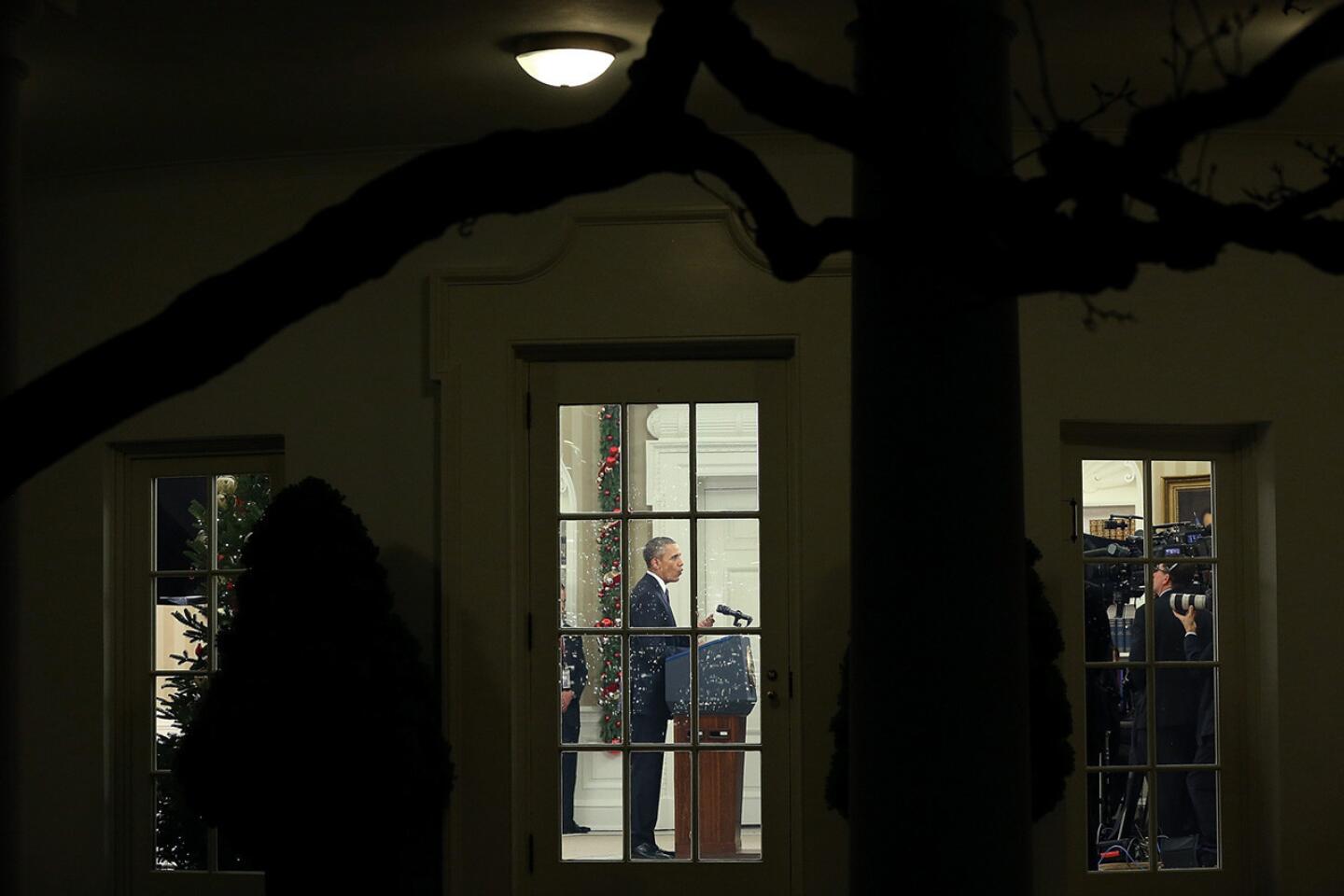Why the White House rushed to correct Obama on his visa waiver mistake
- Share via
In his address to the nation Sunday, President Obama said he had ordered the Departments of State and Homeland Security to review "the visa waiver program under which the female terrorist in San Bernardino originally came to this country."
He misspoke.
The White House corrected Obama in its official transcript sent less than an hour after he concluded his remarks. The correction was noted with an asterisk and a strikethrough of the word "waiver." That's because Tashfeen Malik, the woman who would later join her husband in slaughtering 14 people in San Bernardino, entered the United States on a K1 visa, also known as a fiancé visa.
The K1 visa is a previously obscure program reserved for foreign men and women intending to marry a U.S. citizen. Authorities now probing Wednesday’s massacre as a terrorist attack have said K1 applicants, like other visa applicants, undergo an extensive counterterrorism screening that includes checks based on fingerprints and facial recognition software.
For approval to enter the United States, Malik would have needed to check the "No" box on a series of questions asking about past — or future — terrorist activity or affiliations.
The visa waiver program, by contrast, allows citizens of 38 participating countries — including Australia, the United Kingdom and many European countries — to travel to the United States and stay without a visa for 90 days or less.
Here is a primer on the type of visa Malik and Syed Rizwan Farook were granted, a process that allowed her to later gain permanent resident status.
SIGN UP for our free Essential Politics newsletter >>
What is a K1 visa?
The K1 visa permits the foreign-citizen fiancé of a U.S. citizen to travel to the U.S. and marry his or her sponsor within 90 days of arrival. It is one of dozens of visas that allow foreigners to enter the U.S. Read more.
How are applicants screened?
"Since 9/11, all of these involve multiple layers of vetting with multiple agencies putting folks through various systems, where we watch individuals, what their affiliations are, whether they’re on any kind of watch lists," State Department spokesman Mark Toner said in a news briefing Thursday. "All of this is done for any visa applicant."
The steps include a long application that both members of the couple must complete. Malik and Farook would have needed to provide proof of engagement, proof they intended to get married and biographical data.
There also is a long review process conducted by United States Citizenship and Immigration Services. Once USCIS approves the K1, a process that can take anywhere from 6 months to 2 years, the application is handed off to the State Department.
Malik would also have needed to undergo a medical exam. A doctor approved by the consulate or embassy would have checked her for tuberculosis, making sure she had her vaccinations and asking her about prior drug use.
Next up would have been a long questionnaire that Malik needed to submit before an in-person interview.
Here are some of the questions she would have been asked:
How important are those questions?
In addition to answering them, Malik would have needed to detail for immigration and State officials every country to which she had traveled over the last five years and any family members she had in the United States.
Officials review the applications "very closely looking for indicators of deception, fraud or inconsistencies," according to Washington-based immigration attorney Michael Freestone.
In Malik's case, if her application had been flagged for one of those indicators, she "would have had a very different experience, with lines of questioning designed to put [her] under pressure," Freestone said.
What else would Malik have needed to do?
She must have sat for an in-person interview in her country of citizenship. Malik was born in Pakistan and moved with her family to Saudi Arabia when she was a child. State Department officials would have asked how Malik and Farook met and about the proposal, and some details about Farook, as the U.S. citizen.
In some cases, the application is approved on the spot, clearing the person for entry into the United States.
What about the wedding?
Under this process, the legal marriage must take place in the United States within 90 days of the person entering the country.
The Times has reported that Farook’s co-workers say he and Malik married last year in Islam's holy city of Mecca in Saudi Arabia. The couple held a walima, a celebration after the wedding, at the Islamic Center of Riverside for people who couldn't attend the Saudi ceremony; a few hundred people attended, said Nizaam Ali, who worshiped with Farook at a San Bernardino mosque.
It is unclear when the couple was legally married.
ALSO
How does Islamic State make money off oil fields in Syria and Iraq?
Timeline: The San Bernardino shooting and aftermath, step by step
Fathers, mothers, a free spirit: Who the San Bernardino victims were
Get the L.A. Times Politics newsletter
Deeply reported insights into legislation, politics and policy from Sacramento, Washington and beyond. In your inbox three times per week.
You may occasionally receive promotional content from the Los Angeles Times.












